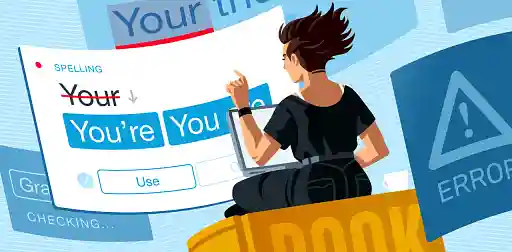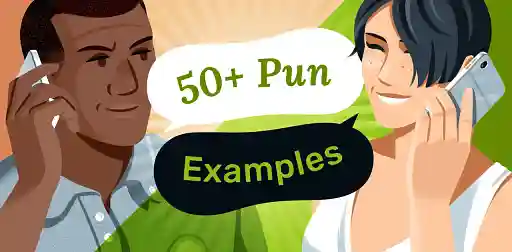Last updated on Oct 14, 2025
Hyphen vs Dash: How to Pick the Right One
Dario Villirilli
Editor-in-Chief of the Reedsy blog, Dario is a graduate of Mälardalen University. As a freelance writer, he has written for many esteemed outlets aimed at writers. A traveler at heart, he can be found roaming the world and working from his laptop.
View profile →Hyphens (-) and dashes (—) are punctuation marks used to connect ideas, though the two are often confused. Hyphens are used to connect related words, while dashes are used as a “stronger comma” to highlight a certain part of a sentence.
Knowing when each mark should be used can be challenging. In this post, we look at some quick rules that will help you figure out if you need to use a hyphen or a dash.
When do you need a hyphen?
A hyphen looks like this (-) and is much shorter than a dash. Since it’s used to connect words, it doesn’t have spaces on either side of it. But what kinds of words can be connected with a hyphen? Here are three of the most common instances.
When there’s a compound word
A compound word is exactly what it sounds like: two or more words combined into one as nouns or adjectives. For example:
She is a high-earner. She comes from a well-educated family.
Not all compound words need a hyphen. Some of them become so commonly used that they eventually merge into one, such as firefighter or policeman. But when the compound word is not so common, the hyphen is required. Overall, there’s no hard and fast rule for which compound words need hyphens and which ones don’t. You’ll have to play it by ear, but it’s usually fairly easy to get it right. Compound modifiers, on the other hand, can get a bit tricky.
When there’s a compound modifier
A compound modifier is when there are two or more words that make a unit of meaning, and without the hyphen, it’s unclear that these words are related. This is typically a combination of an adjective and a noun. For example:
Students are required to live in on-campus housing.

If you were to write “on campus housing” without the hyphen, the meaning of the phrase would be lost. “On-campus” is a single unit of meaning referring to the university’s housing. Without the hyphen, the sentence would be incorrect and confusing, but with the hyphen it’s clear that the two words belong together.
However, a hyphen with a compound modifier is only required when the adjective comes before the noun. Let’s look at the same example, phrased differently:
Students are required to live in housing on campus.
Since it’s clear that “on campus” refers to housing, there's no need to add a hyphen to clarify that.
Compound modifiers can also be used with whole phrases that need more than one hyphen. Some common uses are “edge-of-your-seat” and “mother-in-law,” among many others. These are phrases that are understood as a single word or idea, which is why they need to be hyphenated. You can also use hyphens to express ideas creatively, such as “being stuck in a don’t-dare-to-dream hole.” Essentially, you can use hyphens whenever you want a phrase to be taken as a single unit.
Hint: A common mistake with hyphens is to use them after adverbs
A poorly-reviewed play ❌
A poorly reviewed play ✅
Finally, there’s one more crucial place you should know your hyphen rules for: numbers.
When there’s an age or number
Any numbers above twenty are considered compound words and to be correctly understood as a single number, rather than multiple, require a hyphen between them. However, this is only true for the numbers between 21 and 99. You don’t want to go hyphen-crazy if you need to write out five thousand four hundred eighty-three.
For example:
Forty-two, Three hundred sixty-five
When writing age, you have to consider whether the age is being used as an adjective or not. If it is, it needs to be hyphenated. In the example below, you need hyphens because it functions as a compound adjective:
A twenty-nine-year-old writer penned this novel.
Since the writer’s age is being used as a descriptor, hyphens are needed. However, if you were to write, “The writer is twenty-nine years old,” the “years old” wouldn’t be hyphenated since the adjective now comes after the noun.
Now that we have a good idea of the places where hyphens belong, let’s look at what instances a dash can be used in.
When do you need a dash?
There are actually two types of dashes, but in this post, we’ll focus on the more commonly used em dash (—). According to the Chicago Manual of Style, em dashes don’t have spaces on either side, while other styles do 一 like Reedsy’s own in-house style. Rather than connecting words, dashes are used as connectors between sentences and phrases.
To type an em-dash on a Mac: Option + Shift + Dash (-)
To type an em-dash on a desktop PC: Alt + Ctrl + - on a numeric keypad
To type an em-dash on a laptop PC: Type two hyphens (--) with no spaces on either side
If you use Google Doc, you can also go on Tools > Preferences > Substitutions, and replace “--” with “—”.
One good way to remember when you need a hyphen or a dash is that hyphens are used for words while dashes are used for sentences, particularly in two types of situations.
When you’re making a parenthetical statement
You can think of a parenthetical statement as any phrase you might use in a sentence that would need parentheses or commas around it. They’re parts of the sentence that aren’t technically important but add extra flavor to it. While you can use parentheses or commas, sometimes it makes more sense to use an em dash.
Consider the difference between these three examples:
The avalanche — loud and roaring — tumbled down the mountain.
The avalanche, loud and roaring, tumbled down the mountain.
The avalanche (loud and roaring) tumbled down the mountain.

Each sentence has a different feel to it. The em dash puts emphasis on “loud and roaring,” drawing our attention to it. The same can’t be said for when it’s put between commas. There’s no drama and the sentence almost feels mundane. Meanwhile, using parentheses here feels a bit odd, almost wrong, as it dilutes the power of the words.
Your punctuation can actually have an effect on your writing’s tone. Generally, em dashes add drama while parentheses are good for information that feels like a quiet aside. Commas are like your everyday working man, solid, dependable, and unintrusive.
Some punctuation marks are more controversial than others. Check out our blog post on the Oxford comma to learn how to use it like a pro 一 and how it caused a 5 million dollar lawsuit!
The other instance where it makes sense to use an em dash is…
When there’s an interruption or surprising information
An em dash is a bit abrupt 一 it calls attention to itself and interrupts the sentence, making it a useful device to break your narrative. You’ll often see this used when characters speak, and one person gets cut off in a conversation:
"I never said — "
"Yes, you did!"
It can also be used at the end of a sentence when something shocking happens or a new piece of information is revealed.
The mouse scurried away from the jaws of one cat — straight into the mouth of another!
The murderer had been among them all along — the detective.
It’s a great way to shock your reader, though it should be used sparingly to preserve its impact.
We hope this post has armed you with an iron-clad — and undoubtedly useful — knowledge of how to differentiate between hyphens and dashes.







